Best pictures from Jerusalem Pride that show Israeli LGBT community is here to stay
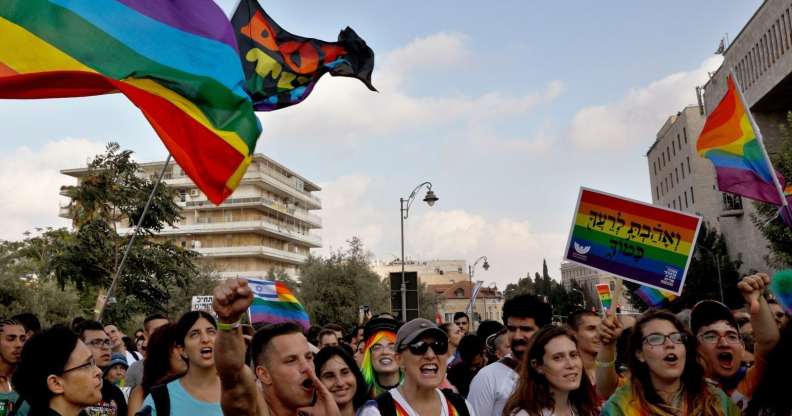
Participants attend the annual Jerusalem Gay Pride Parade on August 2, 2018. (Photo by GALI TIBBON / AFP) (Photo credit should read GALI TIBBON/AFP/Getty Images)
Israelis gathered in Jerusalem to take part in the city’s annual Pride parade on Thursday.
According to several news reports, 20,000 people swept the streets of Jerusalem on Thursday for its annual Pride.
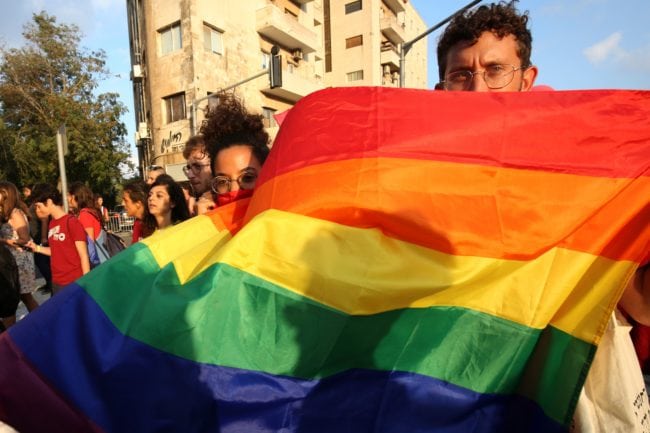
Participants attend the annual Jerusalem Gay Pride Parade on August 2, 2018. (GALI TIBBON/AFP/Getty)
While some reports put the number of attendees at 35,000, which would make the event the biggest ever in Jerusalem, Hadashot TV news said organisers were disappointed that the turnout was not higher.
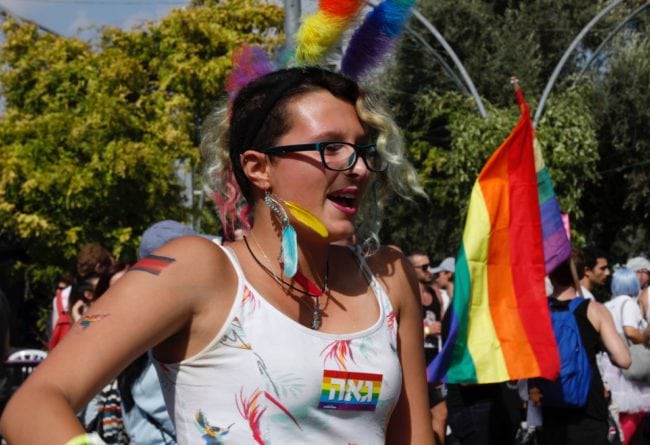
Participants gather ahead of the annual Jerusalem Gay Pride Parade on August 2, 2018. (GALI TIBBON/AFP/Getty)
The demonstration was highly political, with many attendees protesting a recent law denying gay couples the right to surrogacy. Many criticised Prime Minister Benjamin Netanyahu’s government and called for him to resign.
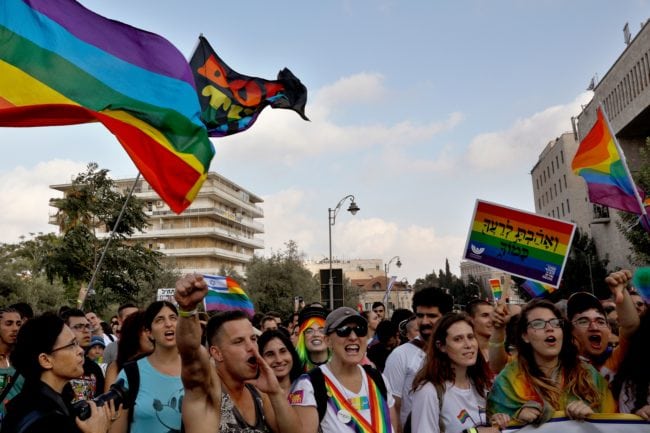
Participants attend the annual Jerusalem Gay Pride Parade on August 2, 2018. (GALI TIBBON/AFP/Getty)
The theme of this year’s event honoured elderly members and pioneers of the LGBT community.
Since the stabbing of 16 year old Shira Banki during a Pride demonstration in 2015, security plays an important role in the city’s Pride.
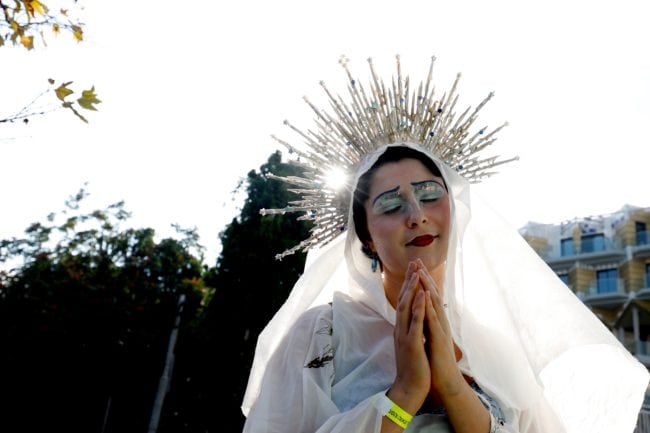
A participant attends the annual Jerusalem Gay Pride Parade on August 2, 2018. (GALI TIBBON/AFP/Getty)
According to the Times of Israel, security was at an all-time high on Thursday, with 2,500 police officers deployed around the city, including some wearing plain clothes. Officers performed security checks on participants and restricted entry to the Pride march across the city.
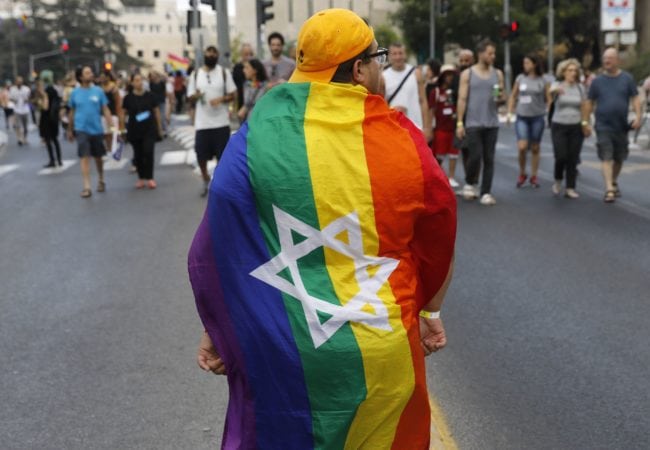
Participants take part in the annual Jerusalem Gay Pride parade on August 2, 2018. (MENAHEM KAHANA/AFP/Getty)
“Our job is to make sure everyone can express themselves,” said Police Commissioner Roni Alsheich, “and of course that no one gets hurt.”
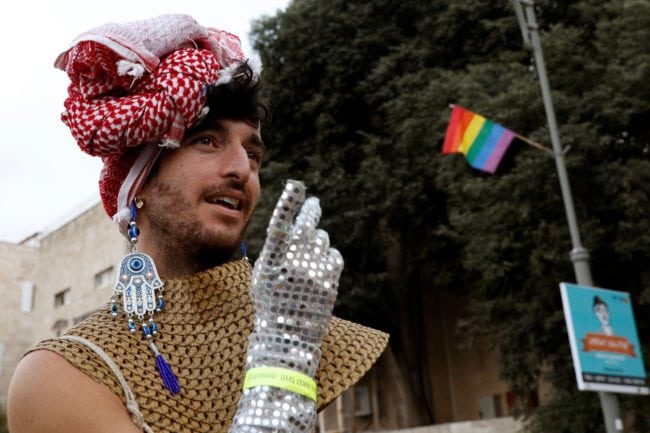
Participants attend the annual Jerusalem Gay Pride Parade on August 2, 2018. (GALI TIBBON/AFP/Getty)
Organisers handed roses to participants to commemorate Banki. The animated march quieted down when walking past the point where the teen was murdered in 2015.
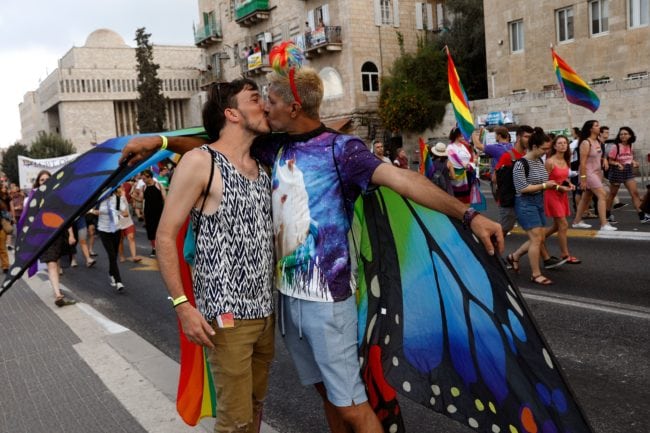
Participants attend the annual Jerusalem Gay Pride Parade on August 2, 2018. (GALI TIBBON/AFP/Getty)
What makes the Jerusalem Pride different from the Tel-Aviv event – and other prides around the world – is that it looks more like a protest than a celebration.
The march is annexed by green sheets that prevent non-participants from watching the parade. Floats are also absent from the demonstration.
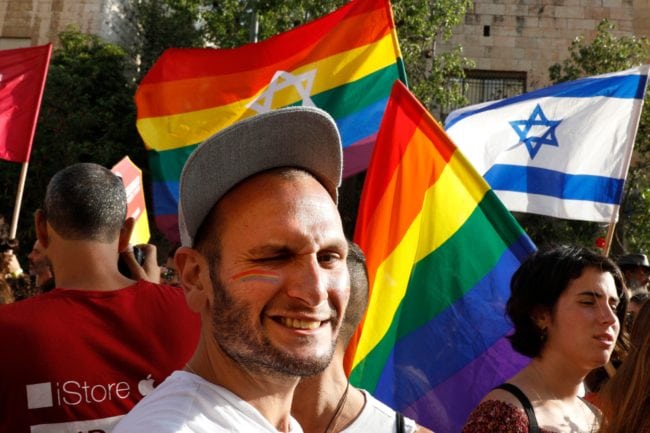
Participants attend the annual Jerusalem Gay Pride Parade on August 2, 2018. (GALI TIBBON/AFP/Getty)
But this did not stop the Jerusalem Pride attendees from having a good time, donning LGBT flags and dancing in the streets.
“The energy is definitely different here than what you see in Tel Aviv, but it is just as high level,” Jerusalem resident Noy Aharon told the Times of Israel.
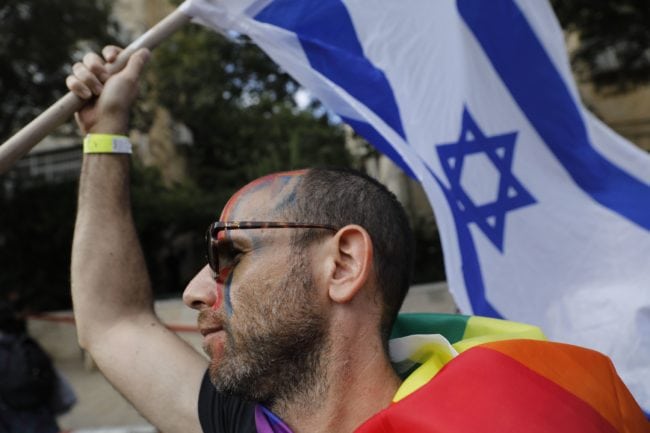
A man waves an Israeli flag during Jerusalem’s annual Gay Pride parade on August 2, 2018. (MENAHEM KAHANA/AFP/Getty)
“In some ways it’s more because with support of the LGBT community less of a given here, people are making a conscious decision to participate. Those who come are much more passionate about being here,” he added.
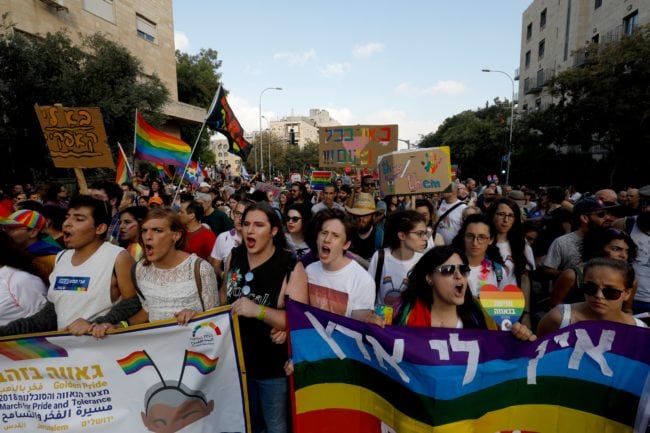
Participants attend the annual Jerusalem Gay Pride Parade on August 2, 2018. (Photo by GALI TIBBON / AFP) (Photo credit should read GALI TIBBON/AFP/Getty)
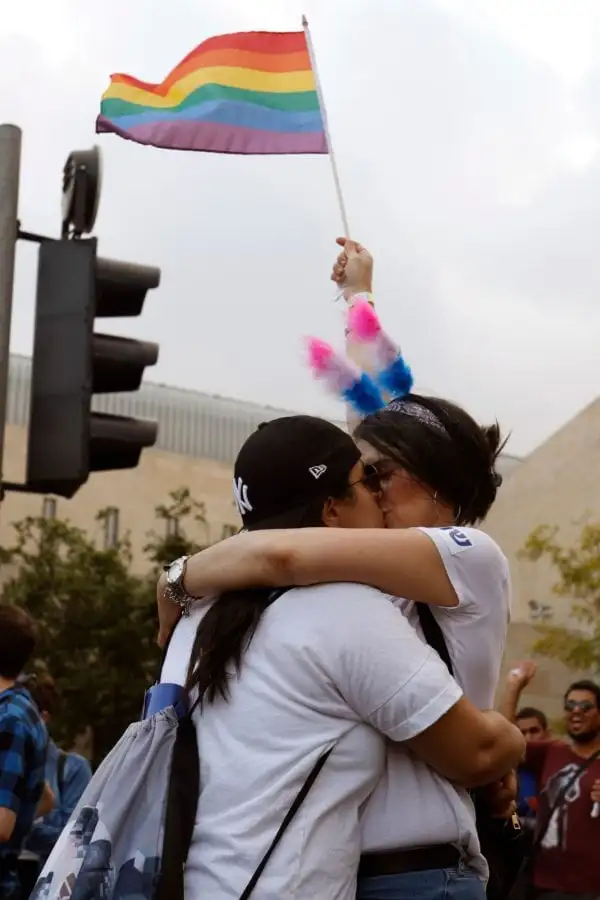
Participants attend the annual Jerusalem Gay Pride Parade on August 2, 2018. (GALI TIBBON/AFP/Getty)
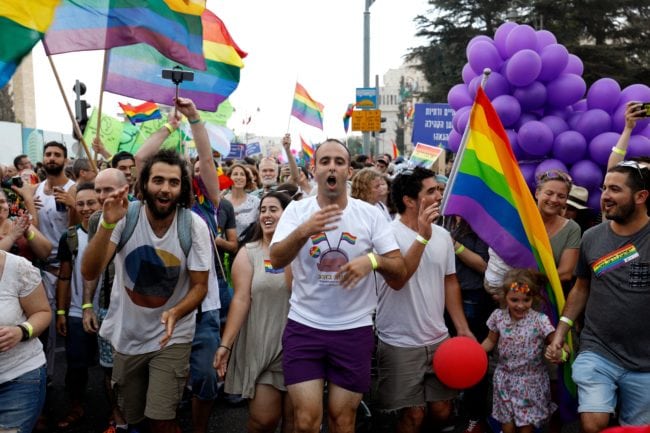
Participants attend the annual Jerusalem Gay Pride parade on August 2, 2018. (GALI TIBBON/AFP/Getty)
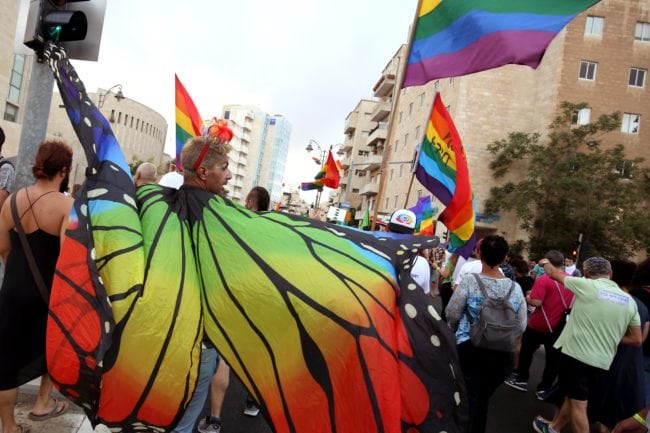
Participants attend the annual Jerusalem Gay Pride Parade on August 2, 2018. (GALI TIBBON/AFP/Getty)

